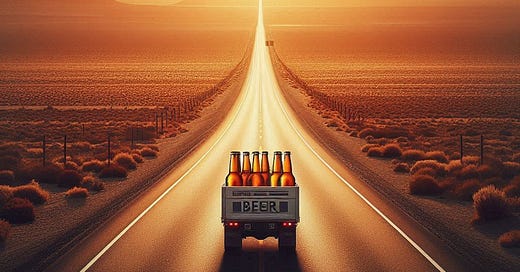The Arc of the Alcohol Universe is Long, But Bends Toward Free Trade
Observations that the changes in Delaware, though unconstitutional, are positive
People who know me well enough will tell you that when it comes to politics in general I’m an optimist; some would even label me a Pollyanna, though I’d dispute that characterization. Yet those same people who recognize my optimistic political streak will correctly identify me as a pessimist when it comes to the state of wine and alcohol in American society. I would not dispute this. Case in point: Delaware
According to reports, the state of Delaware is set to change its rules around beer distribution to allow its brewers to self-distribute beer to restaurants, retailers and bars. They call the practice “self-delivery”, but it’s the same thing. A Delaware beer expert who could only be described as optimistic sees the change in Delewarian law this way:
"This ruling finally undoes an archaic repeal era restriction to the advantage of both Delaware consumers and craft breweries. It’s a pro-small-business move that will also make finding local beer on shelves and in restaurants and taprooms easier—a total win-win,” said John Medkeff, author of a book on the history of the brewing industry in the state.”
But according to the actual regulations issued on the matter by Delaware Alcohol Beverage Commissioner Jacqueline Paradee Mette, there are some important details to take into consideration (here comes the pessimist):
1. Only breweries producing 5,000 barrels or fewer may ditch the wholesalers and self-distribute no more than 1,500 barrels worth of their beers.
2. The brewers who choose to self-distribute may only do so using their own vehicles driven by their employees.
3. The new regulation only applies to in-state breweries, not to out-of-state breweries.
I make a note of these limitations written into the new Delaware self-distribution code to point out that there is nothing inherently dangerous or problematic with larger breweries in or outside Delaware distributing unlimited amounts of beer to the state’s retailers using a contract delivery person.




